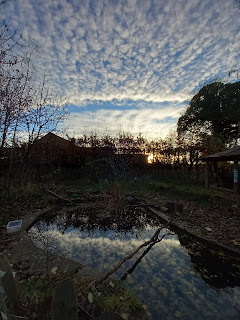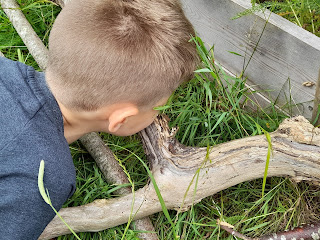Making Sense
To fully understand how children learn we need to understand how they experience that learning.
A lot of what we as adults have learned in life feels innate.
Most of us don't remember being taught to walk or talk, we don't necessarily remember being taught to hold a pencil or crayon, or how to wash ourselves. We just 'know' these things. Yes, for some of us, these skills were trickier than others, but if we have 'mastered' them, we do them without a second thought.
We never had planned 'lessons' in tidying up, most of us started when we were small by putting things back in a toy box, hopefully as a game!
Yes, it may have been a struggle once putting things away ceased to be fun, but we all understand the concept - even if we're not good at it! I appreciate there are factors surrounding something this' simple' which means even as adults there is a vast scale of who does and doesn't do this well...!
In education, we go through waves of 'fashionable' learning, with Governments leaning towards one kind of educational philosophy or another. Even with Pedagogy Local Authorities, School Management, or even Department Heads will place more emphasis on one than another.
If you've been in education long enough you see the same ideas come back round as new!
Part of the issue I have with ANY of these 'fads' is that not only are they promoted as THE answer to making learning 'easier', but they frequently have a narrow interpretation and seem to infer that all children can access learning within this concept when we all know that even adults access learning in different ways!
For example, when putting together a flat-pack wardrobe do you require someone to help? Do you prefer it if someone reads the instructions to you as you go? Do you read it yourself? Do you just look at the diagram? Do you lay all the parts out beforehand or tear open bags as you go?
If you all end up with a functioning wardrobe was any of these processes 'wrong'?
Children learn in a multitude of different ways. A group will require the instructions to be read AND reading it themselves AND looking at the diagram AND working with someone, with different children needing their task adjusting to be heavy on listening, or reading, or pictures, or teamwork to be successful. They are as individual as we are.
What underpins how any of these children learn is how these children experience the world, and one of the biggest disservices in education is ignoring the human senses.
For a start, most of us are taught there are 5 senses when actually there are 8!
Even if we were made aware of the 3 lesser known senses schools rarely acknowledge them and they are missed out of planning activities. Yet these are intrinsic to human development, and without allowing and encouraging children to grow holistically, trying to 'educate' them is going to be difficult!
We all learn best through doing a task, even reading something is actually DOING!
Working on the assumption that everyone has a firm grasp of what touch, sound, taste, sight, and smell are, we're going to look at Vestibular, Interoception, and Proprioception - not such quick easy labels!
This, like all senses, develops over time and can be impacted by illness, such as inner ear infection, but the more we use it, the stronger it becomes!
They have to LEARN how to interpret the cues their bodies give off. If you don't recognise you are thirsty it doesn't mean you will be paying attention regardless!















.jpg)







Comments
Post a Comment